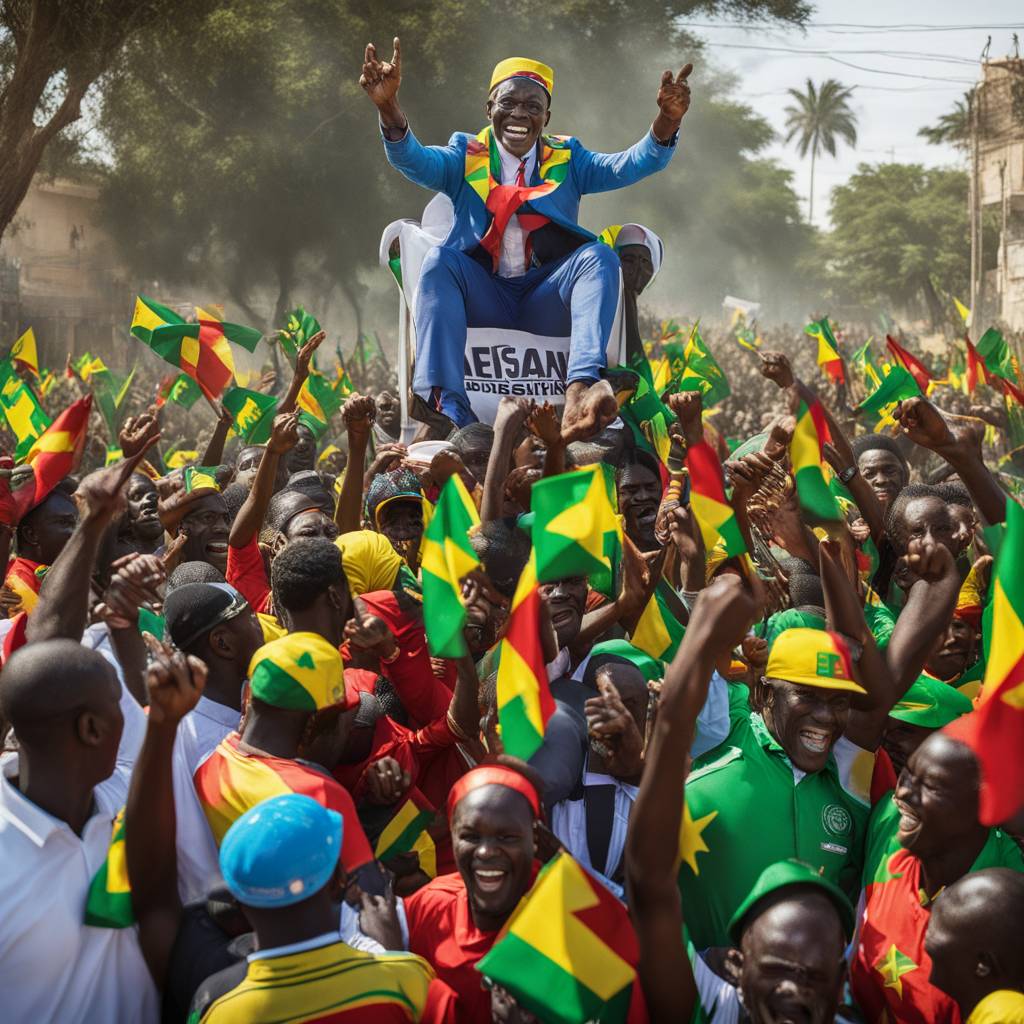Opposition supporters in Senegal took to the streets in celebration as early results from the presidential vote showed Bassirou Diomaye Faye in the lead. Despite this, the ruling coalition stated that a run-off might be needed to determine the winner. Former Prime Minister Amadou Ba, the main rival to Faye, suggested that the celebrations were premature, and the outcome was still uncertain. This came after three years of political turmoil in Senegal, with supporters of the opposition seeking to put an end to the administration led by outgoing President Macky Sall.
The incumbent, Sall, was not on the ballot for the first time in Senegal’s history, and his ruling coalition selected Ba as its candidate. Ousmane Sonko, a prominent opposition leader who was disqualified from running due to a defamation conviction, supported Faye. Sonko was recently released from jail along with Faye, who faced similar charges, thanks to an amnesty law passed just before the election. The duo campaigned together under the slogan “Diomaye is Sonko,” aiming to bring about change in the country. The election saw a voter turnout of around 71 percent, with approximately 7.3 million registered voters participating peacefully.
The initial results showed Faye leading in the election, prompting jubilant celebrations in Dakar and Sonko’s neighborhood. Supporters of various candidates congratulated Faye on his performance, highlighting the divisive yet hopeful atmosphere in the country. However, no official victory claim had been made as the counting of votes continued with provisional results expected by Tuesday. The possibility of a second round of voting was still on the table if no candidate secured the required majority to avoid a run-off.
The upcoming presidential election in Senegal marks a significant turning point in the country’s political landscape, as it signals the potential end of Sall’s administration and the beginning of a new era under a different leader. The unrest and protests that have characterized recent years seem to have galvanized support for the opposition, with many hoping for a change in leadership. Faye’s apparent lead in the early results has raised hopes among his supporters, but the ruling coalition remains steadfast in its stance that a run-off may be necessary to determine the ultimate winner.
As the final provisional results are awaited and the possibility of a run-off looms, Senegal finds itself at a crucial juncture in its democratic journey. The outcome of the election will have far-reaching implications for the country’s future trajectory and could set the stage for meaningful change or continuity in its governance. The peaceful conduct of the election and the high turnout demonstrate Senegal’s commitment to democratic values and the rule of law, despite the challenges it has faced in recent years. Ultimately, the people of Senegal will have the final say in determining the direction their country will take in the years to come.













